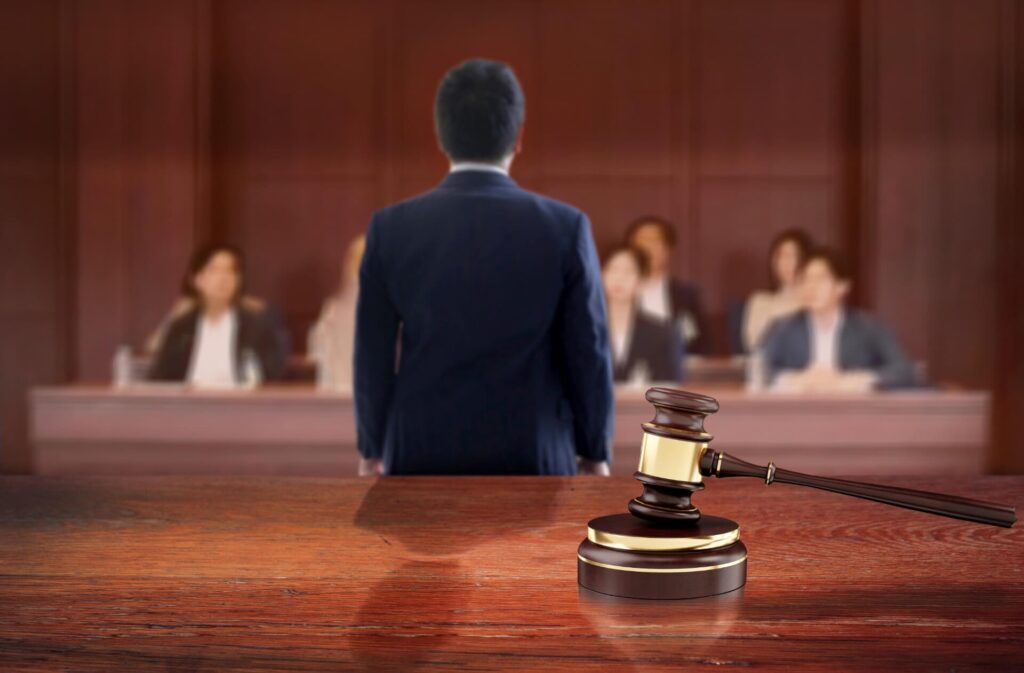A Comprehensive Guide to Weapons Offences of Queensland

Weapons offences in Queensland are serious matters, carrying significant penalties that can impact an individual’s freedom, livelihood, and future. From seemingly minor infractions to grave crimes involving firearms, the state’s legal framework, primarily governed by the Weapons Act 1990 and the Criminal Code 1899, is designed to strictly control the possession, use, and transfer of weapons to ensure public safety. For anyone facing charges related to weapons, understanding the complexities of these laws is paramount, and seeking expert legal counsel from firms like Valeston Lawyers, based in Brisbane, is crucial.
Understanding What Constitutes a Weapon in Queensland
The definition of a “weapon” under Queensland law extends beyond conventional firearms. It encompasses a broad range of items, including:
- Firearms: This is the most obvious category and includes pistols, rifles, shotguns, and even certain air pistols. These are further categorised (A, B, C, D, H, R) based on their design and capacity, with stricter regulations and higher penalties for more dangerous categories (e.g., automatic weapons, certain semi-automatic firearms).
- Ammunition: Possession of ammunition without a corresponding license or legitimate reason is also an offence.
- Knives and Bladed Instruments: Certain types of knives, such as flick knives, ballistic knives, and even some knives designed for concealment, are prohibited. Carrying a knife in a public place without a reasonable excuse is also an offence.
- Other Dangerous Articles: This can include a diverse array of items designed or adapted for use as a weapon, such as knuckledusters, weighted gloves, tasers, and even replicas if carried in a manner that causes fear. The law also extends to clothing or accessories designed to disguise a weapon.
It’s important to note that the intent behind possessing an item can significantly influence whether it’s deemed a weapon in the eyes of the law. Even common household items could be considered a weapon if they are used or intended to be used to cause harm.
Common Weapons Offences in Queensland
The Weapons Act 1990 and the Criminal Code 1899 outline a wide range of offences related to weapons. Some of the most frequently encountered charges include:
1. Unlawful Possession of a Weapon
This is arguably the most common Weapons Offences. It applies when a person possesses a weapon without the appropriate licence, permit, or lawful authority. “Possession” is broadly interpreted and can include having the weapon in your custody, under your control (e.g., in your car, house, or bag), or having the ability to obtain custody of it at will. The severity of the penalty for unlawful possession directly correlates with the category of the weapon and the number of weapons involved. For certain categories, especially restricted weapons like machine guns or military-style firearms, mandatory terms of imprisonment may apply.
2. Possession of an Unregistered Firearm
Even if a person holds a valid weapons licence, possessing a firearm that is not registered is a separate offence. This highlights the integrated licensing and registration scheme in Queensland aimed at tracking all firearms.
3. Failing to Secure Weapons
Licensed weapon owners have a strict obligation to store their firearms securely when they are not in their physical possession. Failing to have secure storage facilities (e.g., a gun safe) or failing to use them can result in significant fines and imprisonment. This offence is designed to prevent firearms from falling into the wrong hands.
4. Modifying or Altering Firearms
It is a serious offence to modify or alter the action or construction of a firearm, possess such a modified firearm, or to deface or alter its identification marks (like a serial number). These laws aim to prevent the creation of more dangerous weapons and to ensure traceability.
5. Unlawful Supply of Weapons
This offence targets individuals who sell, give, or otherwise dispose of a weapon without proper authorisation or through the prescribed legal channels (e.g., a licensed dealer). It’s a key measure to prevent illegal weapon trafficking.
6. Dangerous Conduct with a Weapon
This broad category covers actions that involve a weapon in a dangerous or reckless manner, even if no direct harm is caused. This can include discharging a firearm in a public place or engaging in other conduct that endangers public safety.
Penalties for Weapons Offences
The penalties for Weapons Offences in Queensland are severe and vary significantly depending on the specific charge, the category of the weapon, the circumstances of the offence, and the individual’s criminal history. Penalties can include:
- Fines: Substantial monetary penalties, calculated based on “penalty units,” which are regularly updated.
- Imprisonment: Ranging from months to many years, with some serious offences carrying mandatory minimum terms of imprisonment that must be served wholly in a correctional facility.
- Disqualification from holding a weapons licence: A conviction for a weapons offence will almost certainly lead to the revocation of any existing weapons licence and a ban on obtaining one in the future.
- Forfeiture of weapons: Any weapons involved in the offence will likely be seized and forfeited.
- Serious Violent Offender Declaration: For very serious weapons offences, a person may be declared a serious violent offender, meaning they must serve 80% of their sentence before being eligible for parole.
The court will consider various factors when sentencing, including the nature and seriousness of the offence, the impact on victims, the offender’s personal circumstances, and any mitigating factors.
Defences to Weapons Charges
A strong defence strategy is essential when facing weapons charges. While each case is unique, some common defences that may be available include:
- Lack of Possession: Arguing that the accused was not actually in possession or control of the weapon. This can be complex, especially in shared spaces or vehicles, requiring a detailed understanding of the legal definition of “possession.”
- Not a “Weapon” under the Act: Contending that the item in question does not meet the legal definition of a “weapon” as prescribed by the Weapons Act and associated regulations.
- Lawful Authority or Excuse: Demonstrating that the accused had a legitimate reason or lawful authority to possess the weapon (e.g., a valid licence, employment requiring weapon possession, or specific exemption).
- Duress or Necessity: Arguing that the accused possessed the weapon under duress (threat of harm) or out of necessity to prevent serious harm to themselves or another.
- Mistake of Fact: If the accused held an honest and reasonable belief about a factual matter that, if true, would have made their conduct lawful. For example, genuinely believing a firearm was permanently inoperable.
- Identification Issues: Challenging the prosecution’s evidence that the accused was the person who committed the offence.
Successfully mounting a defence requires a thorough understanding of the law, meticulous evidence gathering, and strategic legal arguments.
The Importance of Expert Legal Advice
Given the severe consequences of a weapons conviction, it is critical to seek legal advice as soon as possible if you are charged with a weapons offence or are even under investigation. Experienced criminal lawyers, such as those at Valeston Lawyers in Brisbane, can:
- Provide a Free Case Appraisal: Offering a clear indication of potential costs and outlining your options.
- Explain the Charges and Penalties: Helping you understand the specific offence, its elements, and the range of possible penalties.
- Investigate the Circumstances: Examining the facts of your arrest, police conduct, and evidence to identify any weaknesses in the prosecution’s case or potential defences.
- Develop a Defence Strategy: Crafting the most effective legal arguments based on the specifics of your case.
- Negotiate with Prosecutors: Potentially leading to reduced charges or alternative resolutions.
- Represent You in Court: Providing strong advocacy and ensuring your rights are protected throughout the legal process.
- Advise on Sentencing: If a conviction is likely, working to present mitigating factors to the court to achieve the most favourable outcome possible, including exploring options like fixed fee arrangements, payment plans, or referrals to Legal Aid where appropriate.
Weapons Offences in Queensland are not to be taken lightly. The legal landscape is complex, and the penalties can be life-altering. Engaging with a dedicated criminal defence firm like Valeston Lawyers can make a significant difference in navigating these challenging circumstances and achieving the best possible outcome for your situation.

